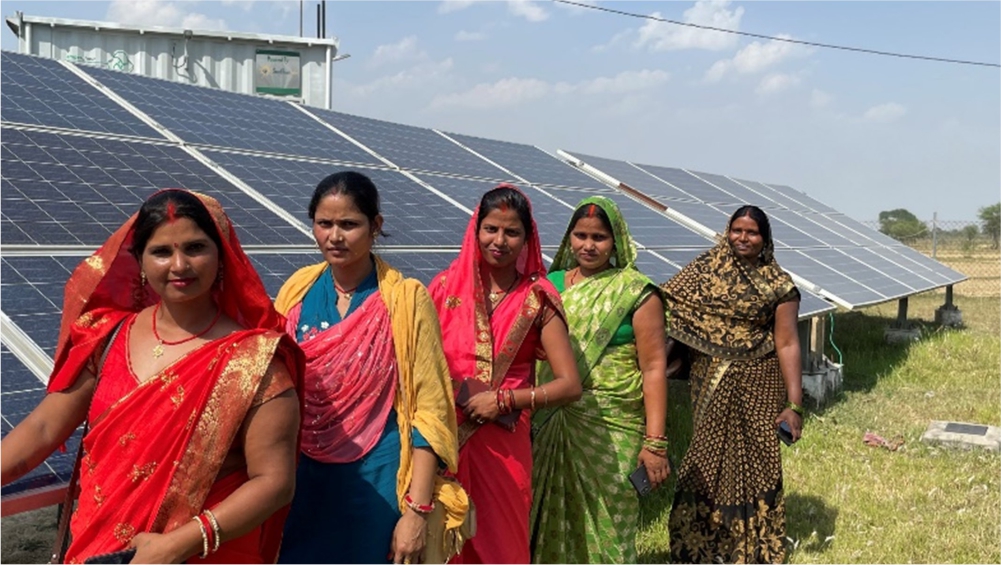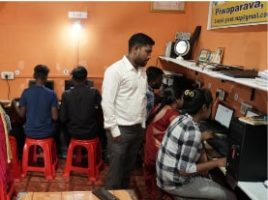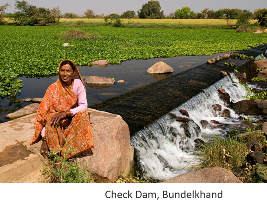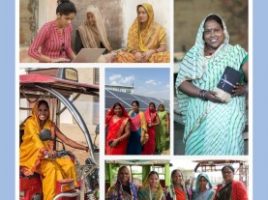Green and Inclusive Entrepreneurship for Job Creation

Over the past few decades, rapid economic growth has presented an opportunity to address challenges such as deepening inequality, lack of social cohesion, environmental degradation, and concerns about the exclusion of diverse population groups. The pandemic has further triggered the most severe crisis in decades and resulted in a setback in progress towards equitable access to decent work, exacerbated by rising inflationary pressures, policy uncertainties, and persistent labour market challenges.
Its impact has been much more pronounced in the Global South, recognised with layers of informality and complexity presented by a spectrum of unemployment. To address these multiple layers of challenges, development solutions are needed to not only promote green and inclusive growth but also build new micro-economies where progress is based on equitable growth and social well-being.
Going forward, development solutions need to account for these multiple layers of challenges, while also being cognisant of the changing dimensions of the ‘future of work’. This will be critical in not only promoting inclusive growth and prosperity but also contributing to a more equitable and cooperative global community.
Green and inclusive entrepreneurship has emerged as one of the key systemic responses to the rapidly changing dynamics of employment and climate change. It not only caters to the growing workforce but also contributes towards a shared vision of constructing sustainable and resilient micro-economies. However, there is an evident ‘missing middle’ in the global policy framework, as informal mini or nano enterprises often get lost in the broad definition of micro-enterprises. These enterprises are job creation engines of the local economies but often lack access to formal finance systems and enabling ecosystems.
The full potential of the opportunities of grassroots entrepreneurship cannot be achieved by a ‘one size fits all’ approach developed by single actors, but by aligning collective efforts. This will require a five-pronged approach with a focus on designing and implementing the following:
- A place-based approach that focuses on the unique strengths, resources, and challenges of specific geographical regions.
- A guided transition for micro-enterprises through a hybrid model of informal formality, which would enable them to formalise operational processes such as digitisation.
- New forms of sustainable finance, including green finance for micro-entrepreneurs.
- Human-centred policies focusing on social protection and economic inclusion, especially for women and youth and investment strategies for critical future-proof sectors, including manufacturing, healthcare, technology, education, and environment
- Policy reforms for the missing middle that recognise the significance of small-scale micro-enterprises as drivers of innovation and job creation.
Thus, a suite of instruments, created collaboratively, is needed to create decent entrepreneurship opportunities for all, especially for women and youth from underserved regions. This will not only enable a just, inclusive, and green transition in economies but also enable a shift from need-based entrepreneurship to aspiration and opportunity-driven entrepreneurship. By building an ecosystem for green and inclusive entrepreneurship, we can unlock the true potential of innovation and drive sustainable progress for both individuals and the wider community. We believe that it is perhaps the only way for millions of people to secure meaningful, dignified livelihoods, for communities to adapt to the effects of climate change and for economies to create a sustainable net-zero future.
The views expressed in the article are those of the authors and not necessarily those of Development Alternatives.
This blog first appeared as an editorial in Development Alternatives Newsletter November, 2023 https://devalt.org/newsletter/37






Leave a Reply